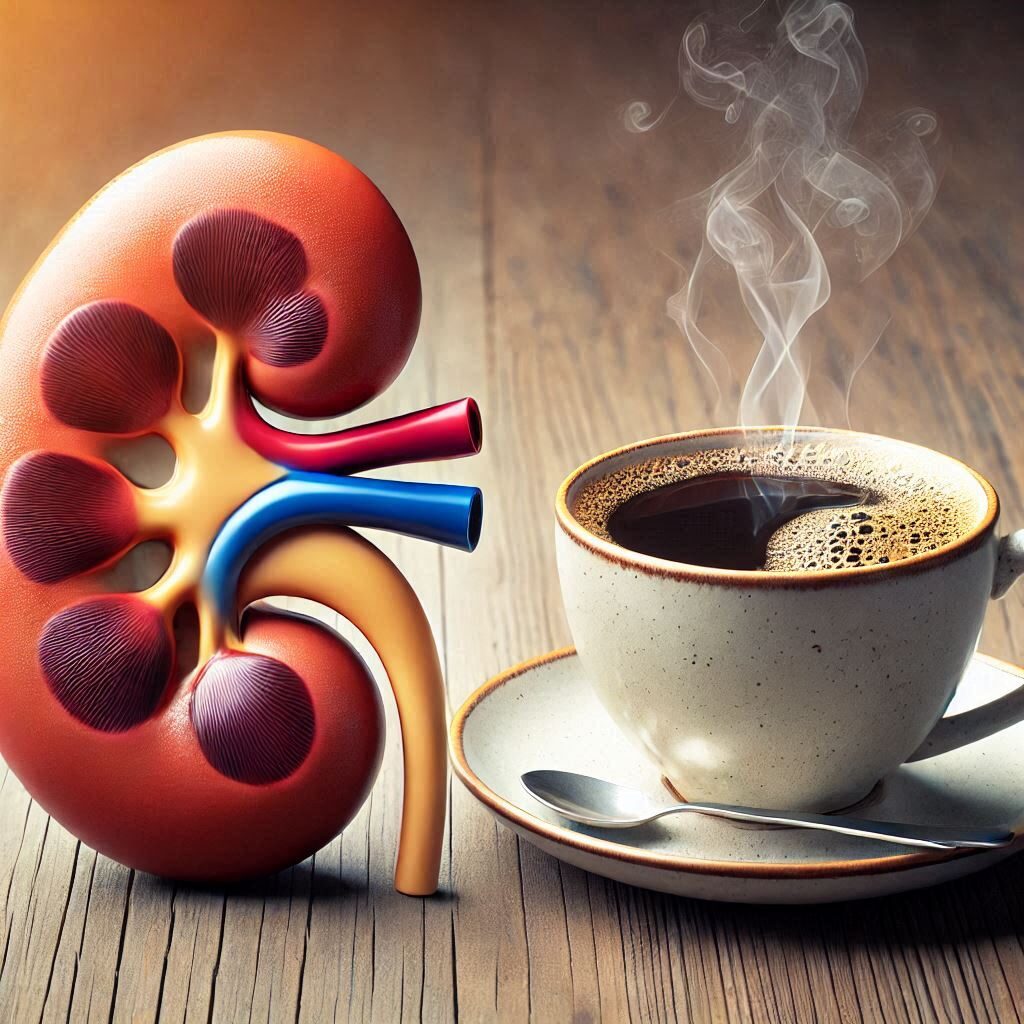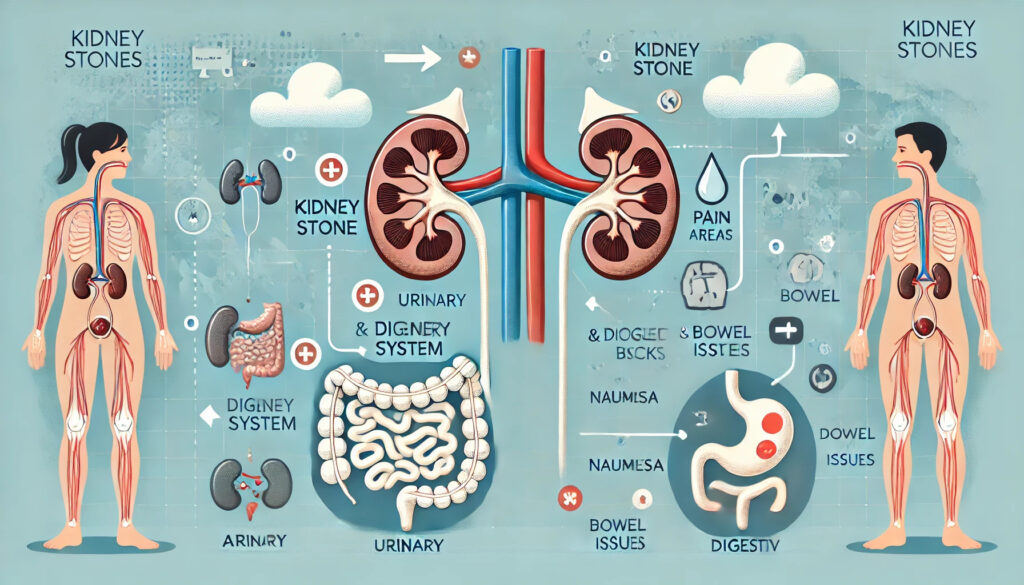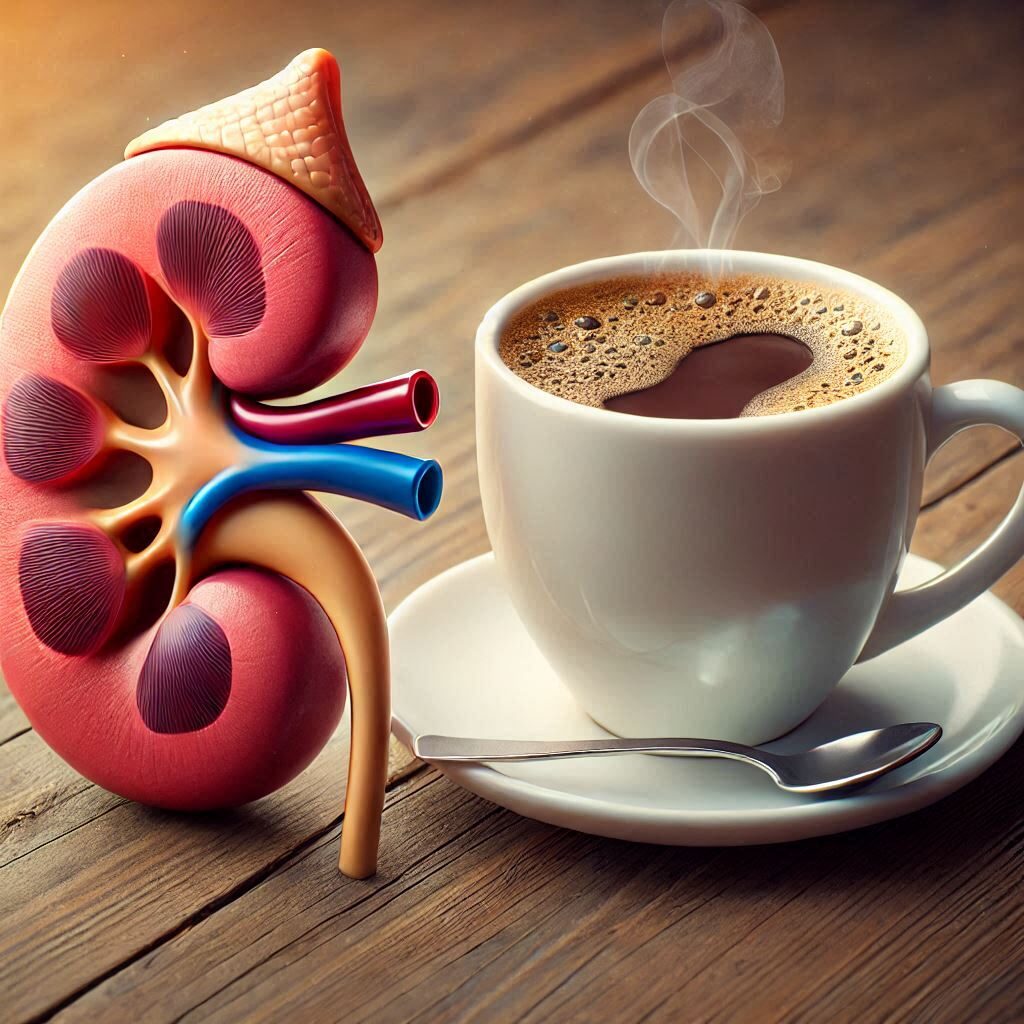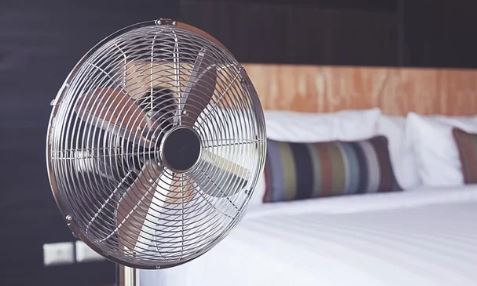Bere caffè potrebbe effettivamente ridurre il rischio di sviluppare calcoli renali, secondo una recente ricerca. Ecco una semplice analisi di ciò che sappiamo finora e di come puoi ridurre il rischio.
Fatti rapidi sui calcoli renali
- Kidney stones can affect people of all ages, even children and teens.
- They are more common in people assigned male at birth, with the risk peaking around age 30.
- Staying hydrated and watching your sodium and calcium intake can help prevent kidney stones.
- Most kidney stones pass on their own, but larger stones might need medical treatment.
Il caffè può prevenire i calcoli renali?

Alcune persone credono che il caffè possa aumentare il rischio di calcoli renali perché ti fa urinare più spesso, portando eventualmente alla disidratazione. Tuttavia, gli studi dimostrano che potrebbe essere vero il contrario:
- Caffeine is protective: A 2021 study found that caffeine in coffee, tea, soda, or alcohol can reduce the risk of kidney stones. Even small increases in coffee consumption (e.g., from 1 to 1.5 cups a day) may lower the risk by up to 40%.
- Better urine flow: Drinking coffee and tea helps increase urine flow, which can prevent stone formation.
- More caffeine, less risk: A 2022 review confirmed that higher caffeine intake is linked to a lower risk of kidney stones.
Quali sono le cause dei calcoli renali?

I calcoli renali si formano quando i prodotti di scarto nelle urine non vengono eliminati correttamente. Questi minerali possono cristallizzarsi e crescere in pietre. Ci sono quattro tipi principali:
- Calcium oxalate stones: The most common type; a low-oxalate diet can help prevent them.
- Uric acid stones: Often linked to gout, diabetes, or metabolic issues.
- Struvite stones: Associated with urinary tract infections (UTIs).
- Cystine stones: Caused by a genetic disorder called cystinuria.
Fattori di rischio per i calcoli renali
Alcuni fattori possono aumentare il rischio di sviluppare calcoli renali:
- Age and family history.
- A high-salt, high-sugar, or high-protein diet.
- Obesity and sedentary lifestyle.
- Health conditions like diabetes or chronic kidney disease.
- Medications like Warfarin or Acetazolamide.
- Living in hot, humid climates.
Sintomi e quando consultare un medico
I sintomi comuni dei calcoli renali includono:
- Lower back or stomach pain.
- Blood in your urine.
- Nausea or vomiting.
Consultare un medico se si avvertono forti dolori, febbre, brividi o difficoltà a urinare.
Come prevenire i calcoli renali
I modi migliori per ridurre il rischio sono attraverso la dieta e l’idratazione:
- Drink more fluids: Staying hydrated is key. Coffee, tea, and water all help flush waste products from your kidneys.
- A 2021 study found that for every extra 200 ml of fluid, the risk of kidney stones drops by 13%.
- Eat less salt and meat: Reducing sodium and animal proteins in your diet can help prevent stone formation.
- A 2020 study linked high salt intake to an increased risk of kidney stones.
- Increase fruit and fiber: Eating more fruits, vegetables, and fiber has been shown to reduce the risk of kidney stones, especially in postmenopausal women.
La conclusione
I calcoli renali sono comuni, ma spesso possono essere prevenuti con semplici cambiamenti nello stile di vita. Bere più liquidi, in particolare caffè e tè, e seguire una dieta sana con meno sale, zucchero e carne può aiutare a ridurre il rischio. La ricerca attuale suggerisce che il caffè potrebbe essere una buona scelta per ridurre il rischio di calcoli renali, ma sono necessari ulteriori studi per confermarlo.
Goditi il tuo caffè: potrebbe aiutare a tenere a bada i calcoli renali!


